For preppers who just want to get away from it all and live a simpler, agrarian lifestyle, or those who want to be well and truly away from civilization when the inevitable collapse occurs, living off the grid is usually a long-term objective.
But living off-grid, while simple in concept and the standard of life in years past, is anything but easy in our modern era.
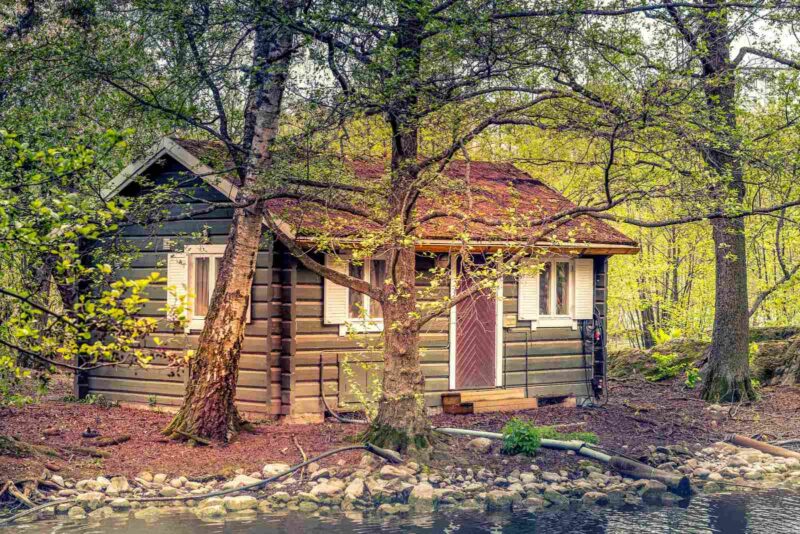
Aside from the challenges inherent to such a lifestyle many states take a dim view of the idea, and accordingly roadblock citizens attempting to do so at every opportunity: Codes, costs, taxes, restrictions, rules, and regulations can make life miserable for an off-gridder, and stretch an already beleaguered budget with inflating finds and other forms of civil extortion.
However, there are plenty of states where the notion is definitely achievable for most folks and a handful where off-grid living will be easier than most other places. If you have dreams of an off-grid escape consider heading to one of the seven states we will share with you below.
The Off-Grid Index
Just what makes a state more favorable for an off-grid lifestyle, particularly that of a working homestead? Is it all just a matter of wide open spaces, plenty of sunshine and fertile soil? Not exactly, unfortunately.
There are many factors that must be considered if you want any amount of assurance that your off-grid lifestyle will not only be sustainable, but affordable and durable, for lack of a better word.
When you are responsible for everything that you need, from the food and water that you source to the electricity you create, if any, sustainment must be foremost in your mind.
Naturally, you’ll need plenty of land in order to accomplish these objectives, and so the price of that land in an area suitable for your venture must be reasonable.
Lastly, you must do all of this in a state that will not unduly burden you with mountains of codes, nebulously worded statutes, and other legalistic BS that is nothing more than a barely disguised hierarchy of fines to bilk money out of you or, worse yet, a hungry pair of handcuffs entirely too eager to throw you into the slave labor camp that is the prison system in America.
Accordingly, I have tallied the list of favorable states based on things like cost of land, taxes, weather, suitability for off-grid energy generation, hunting and water rights, overall freedom index and amenability to the off-grid lifestyle, the latter tabulated as either existing in truly off the grid communities or a high incidence of individual or small family unit off-grid homesteaders.
Every state is a little different, and they all have their advantages and disadvantages but any of them is certainly worth investigating if you are serious about taking the next major step in your self-reliance journey. With that out of the way, let us get to the list.
Top 7 Best States for Off-Grid Living
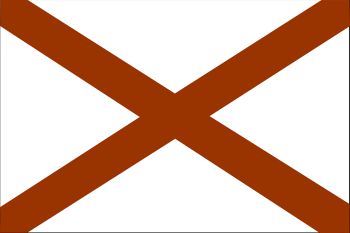
#1. Alabama
One of the quintessential states in the Deep South, Alabama has a lot to offer those who would pursue an off-grid lifestyle. With varied weather consisting of relatively mild winter, spring and fall seasons, you’ll still have to watch out for oppressively hot and humid summers.
This is an easy trade-off to make for most people considering the extremely low cost of land, equally low taxes and decidedly pro-citizen property and water rights. Alabama also has greatly varying terrain on offer and much of it is suitable for farming.

Perhaps the only drawbacks one should be aware of is the overall lack of modern off-grid settlements or practitioners, with what true enclaves there are existing more as backward and highly insular remote communities that have remained frozen in time due to crushing poverty more than anything else.
But in the end, Alabama is an inexpensive, largely free state for citizens enjoy the right to provide their own resources, live and protect themselves as they see fit.
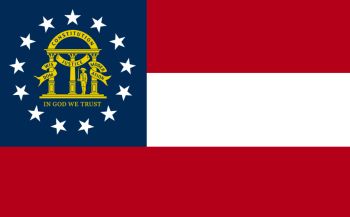
#2. Georgia
Georgia is very much like its neighbor Alabama in many ways, with both of them being quintessential and iconic Deep South states. Like Alabama, Georgia enjoys varied weather with crushingly hot, humid summers, and a great variety of terrain.
Compared to Alabama, however, Georgia features spectacular farmlands suitable for growing all kinds of crops but particularly fruits.

Land in rural and remote communities far away from major settlements is generally quite inexpensive and residents enjoy low property taxes.
However, building codes are considerably more common throughout the state than they are in Alabama, meaning you might still be constrained by the state or county government’s idea of what constitutes an acceptable habitation.
This can have significant consequences when the time comes to install or wire your own power generation equipment or off-grid plumbing. Getting slapped with fines or even having your home condemned over it will bring your off-grid dream to an end decisively.
All in all, Georgia gets high marks for property, water, knife, and gun rights along with a very low cost of living away from major cities, and it is hampered only by more common and restrictive county building codes throughout the state.
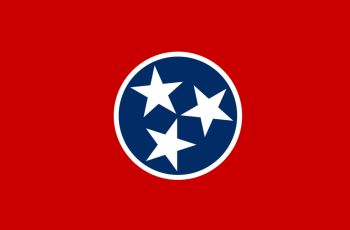
#3. Tennessee
Another traditionally “Southern” state on our list though one not quite as far down south as the first two on our list.
Tennessee still has much to commend it in terms of off-grid living, particularly low taxes, varied terrain and biomes to suit any preference and a strong culture of independence, a holdover from days gone by in our country’s history.
But aside from a rugged and independent aesthetic, Tennessee backs this up with excellent water, knife, and gun rights, and the low taxes are sure to make anyone happy. Tennessee has plenty of land suitable for farming, though it is not as renowned for its suitability for agriculture as some other states on our list.

Perhaps the most cause for concern for truly independent homesteaders is the state’s low score when it comes to suitability for generation of off-grid power, both sun and wind.
Make no mistake, you’ll have plenty of sunshine in the summer, and small-scale windmills are reasonably viable, but neither is a standout option throughout much of the state. So long as that is not a deal breaker, the amiable laws and pro-freedom ideology the state is famous for can be found in every facet of life in the Volunteer State.
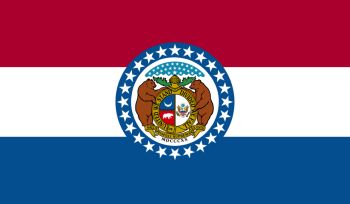
#4. Missouri
The fourth entry on our list will probably come as a surprise to readers. Compared to the “last frontier” of Alaska or the free-as-free-gets popular conception of Texas, Missouri might seem like a peculiar inclusion. Well, surprised or not Missouri has a lot going for it when it comes to off-grid lifestyles.

In practical terms, Missouri shows excellent potential when it comes to the generation of off-grid energy, both solar and wind farms. This can open up locations or approaches to establishing your homestead that will be difficult or impossible elsewhere.
Even better, Missouri has a surprisingly large selection of off-grid communities and a significant number of small families and individuals scattered throughout the state, meaning you won’t be the first person with this idea.
For those who do not truly want to leave society behind, living in or near one of these communities could be ideal.
Knife laws are decent, though you should get a CC permit just to be safe.
Unfortunately, you might need to prepare for a rough ride making a go of it in Missouri, as the state is famous, or rather infamous, for its rough weather throughout the year and also for its higher than average cost of land and taxes.

#5. Louisiana
Louisiana is an intriguing but viable choice for off-grid living, or at least for the right kind of person. Probably the best asset Louisiana has going for it is the variety of food that can be taken through ample hunting and fishing opportunities throughout the state.
You’ll find fare that walks, flies and swims throughout, and the state is rightly famous for its cuisine, thanks in part to the many edible critters that reside there.
Even better, many parts of the state are sparsely populated, and that means you won’t have to look too hard or too far to find a place with a minimum of neighbors if that is what you desire.
For those who are misanthropic types or people who just fear what will happen to densely populated urban and suburban zones during an SHTF event, this could be ideal. Should that concern you, though, know that its knife laws are very permissive.

But unfortunately there seem to be just as many trade-offs: Louisiana residents are unfortunately burdened with more property and water rights laws than other comparable states, the soil is only decent and suitable for growing certain kinds of crops or other plants, and some of the best hunting and fishing areas happen to be dangerous, treacherous swamps.
Also, not for nothing, the state is situated on the Gulf of Mexico and will be periodically pounded by hurricanes. Plan accordingly!
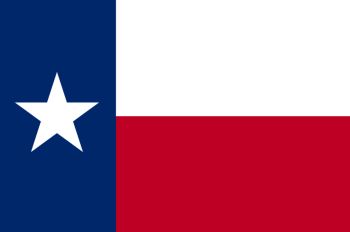
#6. Texas
Texas is often thought of the freest state in the Land of the Free, and though the actual tale of the tape shows that to be an arguable notion at best, Texas is still, in actuality, a great place to live, and a fine candidate for an off-grid homestead.
Hallmarks of the state include tons and tons of cheap land, few building codes in many counties and generally good water rights. It’s also a good state for owning knives, with some blade restrictions, but nothing too concerning.

On the other hand, high taxes and variably hostile weather are detractions one must be prepared for, but this is offset by its excellent candidacy or off-grid power generation, alternately solar or wind power depending on where you are in the state.
One major curveball that all preppers must be aware of, especially those who want to live an isolated, agrarian existence is that the southern border shared with Mexico is constantly beset by conflict and . Certain areas have become particularly dangerous, and with the United States becoming increasingly soft on border security this situation shows no sign of abating.

#7. Iowa
For those with an eye toward agriculture for long-term sustainment, Iowa might be the ideal state to make a go of it off-grid.
Land throughout the state is suitable for growing all kinds of crops and no matter where you end up there will be at least a handful of staples that will thrive so long as you do your part.
Another feather in Iowa’s cap is the sparse population outside of major metropolitan areas, meaning that wherever you go outside of the big cities you’ll have plenty of elbow room to set up shop.
Iowa’s knife laws are so and so, and a little hard to digest.

However Iowa, like many Midwest states, suffers from unpredictable (but predictably violent) bad weather throughout the year. Tornadoes are a major concern in the spring and summer and winters can sometimes be punishing.
Of more concern to some are the nearly uniform and restrictive building codes in force throughout the state, meaning that establishing an alternate style of residential dwelling could be difficult, impossible or just very costly.
This means that Iowa, while possessing excellent off-grid potential, might only be a top three choice for those who are dead set on growing a variety of crops and other agricultural or farming related pursuits.
Conclusion
A self-contained, self-sustaining off-grid lifestyle does not have to remain a dream if you know where to go and where to look.
Though living off-grid is hypothetically achievable in every state, some states are better than others and only a few are truly welcoming for those who would take up the challenge of radical self-reliance.
Take the time to carefully review all of the states on this list against your requirements and preferences; you’ll be glad you did.
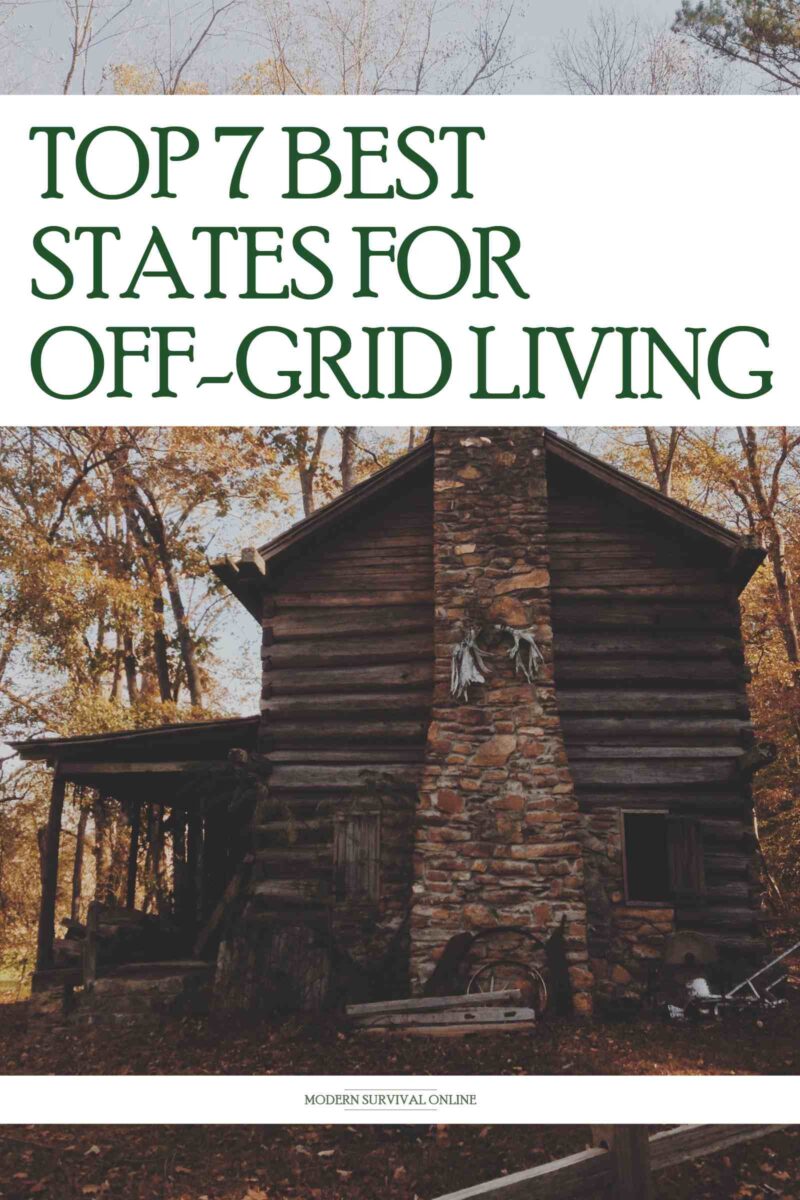
via Modern Survival Online https://ift.tt/2Y9SoDe
No comments:
Post a Comment